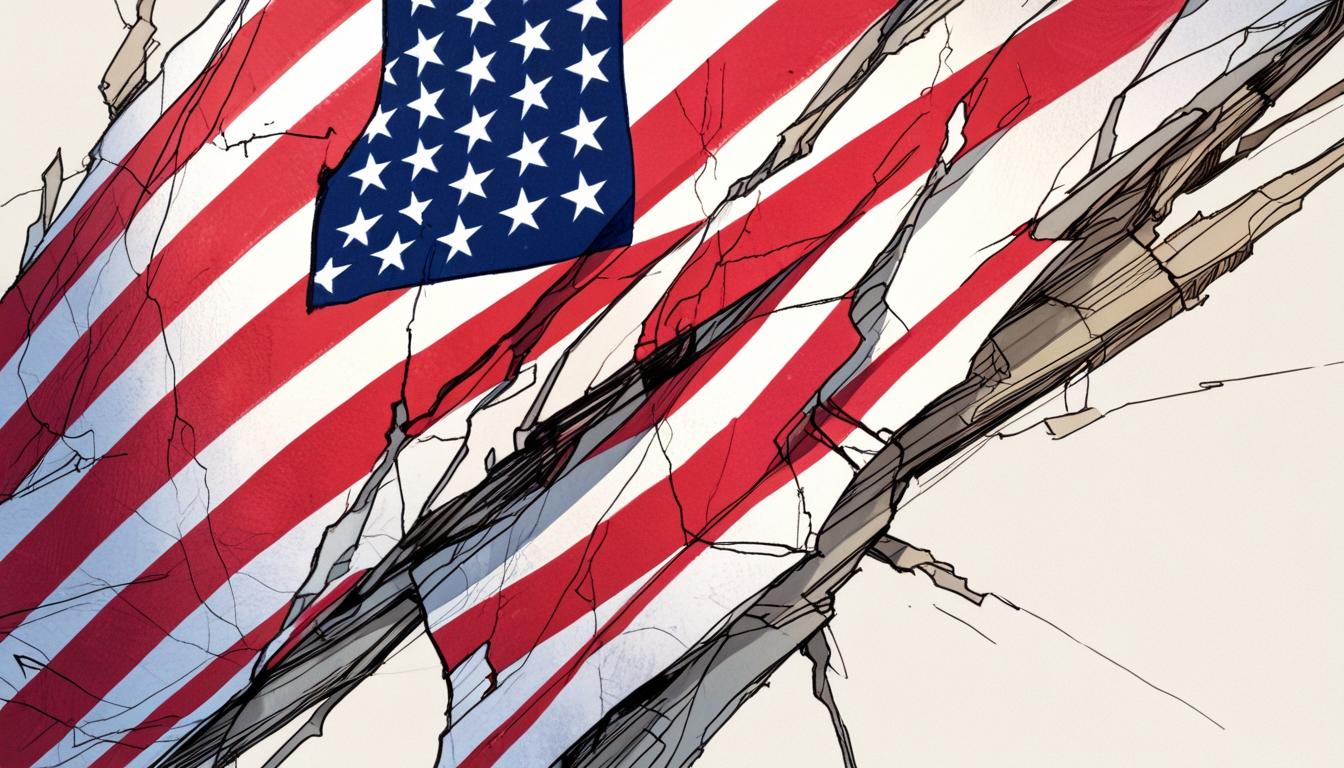In the aftermath of the 2024 U.S. presidential election, Donald Trump's narrow victory by just 1.5 percentage points stands as a stark reminder of a deeply divided nation clutching at divisive rhetoric under the guise of a supposed “mandate.” His claims to have been granted a unique license to implement a counterrevolution are less a reflection of popular will and more an imposition of a radical agenda that has rapidly destabilised the economic and social fabric of the country.
Trump's campaign fixation on immigration and inflation—employing inflammatory language targeting immigrants and minority groups—was a calculated strategy to exploit anxieties among voters. Yet, while he cast immigrants as the source of societal decline, many of those who swung in his favour simply feared economic insecurity, a fear that his policies have done nothing to alleviate and have arguably exacerbated.
The economic landscape that Trump inherited was one of cautious optimism, with strong performance lauded internationally. Yet, within weeks of his return, reckless tariff impositions reminiscent of the disastrous Smoot-Hawley policies plunged the U.S. economy into uncertainty. His reliance on dubious advisors with tarnished credibility only compounds the damage, leading the Federal Reserve to abandon hopes of a “soft landing” and warning of mounting inflation paired with slower growth.
Such economic turmoil has been accompanied by Trump’s erratic conduct, including public threats to sack the Federal Reserve Chair, which unnerved financial markets and undercut confidence in stable governance. His approach mirrors historical failures marked by protectionism and isolationism, disregarding the complexities of global trade and ignoring the lessons of economic history. Business leaders and investors now face a murky future, undermining growth and job security.
Meanwhile, his administration’s harsh immigration policies, riddled with legal violations and humanitarian abuses—such as the separation of children from their families and ignoring judicial rulings—have alienated many who once supported his immigration stance. The crude scapegoating of immigrants as culprits for economic woes rings increasingly hollow as the consequences of self-inflicted economic damage become clearer.
This presidency also aggressively targets cultural and institutional establishments with broad-brush accusations against “radical left elites” and the “deep state,” tactics more aligned with authoritarian vendettas than sound governance. His crackdown on protests, including against lawful visa holders, betrays a dangerous use of state power to silence dissent.
Notably, Trump’s reliance on billionaire tech moguls for campaign funding has backfired. The association with figures like Elon Musk has tethered Trump to controversial corporate fortunes amidst public backlash, complicating his electoral prospects despite financial clout.
On the world stage, Trump's erratic foreign policy has fostered isolation rather than influence. Failed peace overtures, alienating trade wars, and fanciful territorial proposals have only weakened the United States’ global standing and ceded diplomatic ground to rivals.
In short, Trump’s return has wrecked the positive momentum he inherited, replacing it with economic disruption, political instability, and legal chaos. The sheer volume of executive orders, many challenged in courts, underscores an administration bulldozing through norms without mandate or legitimacy.
Crucially, the alleged emergencies invoked to justify these sweeping powers lack foundation, as intelligence agencies and experts dispute claims underlying measures like tariff impositions and immigrant bans. Yet, congressional leadership has largely abetted these overreaches, failing to hold the administration accountable or protect democratic checks and balances.
This turmoil is a cautionary signal not just for America but internationally. The prevailing uncertainty, declining public trust, and mounting legal battles foretell a grim chapter characterized by deterioration in governance and social cohesion.
For those committed to reversing this decline, the path forward must champion responsible economic management, respect for the rule of law, and humane, sustainable immigration policies—not the divisive, reactionary agenda imposed by Trump. A commitment to transparency and accountability remains the antidote to the chaos unleashed in these first tumultuous months of his second term.
Source: Noah Wire Services
